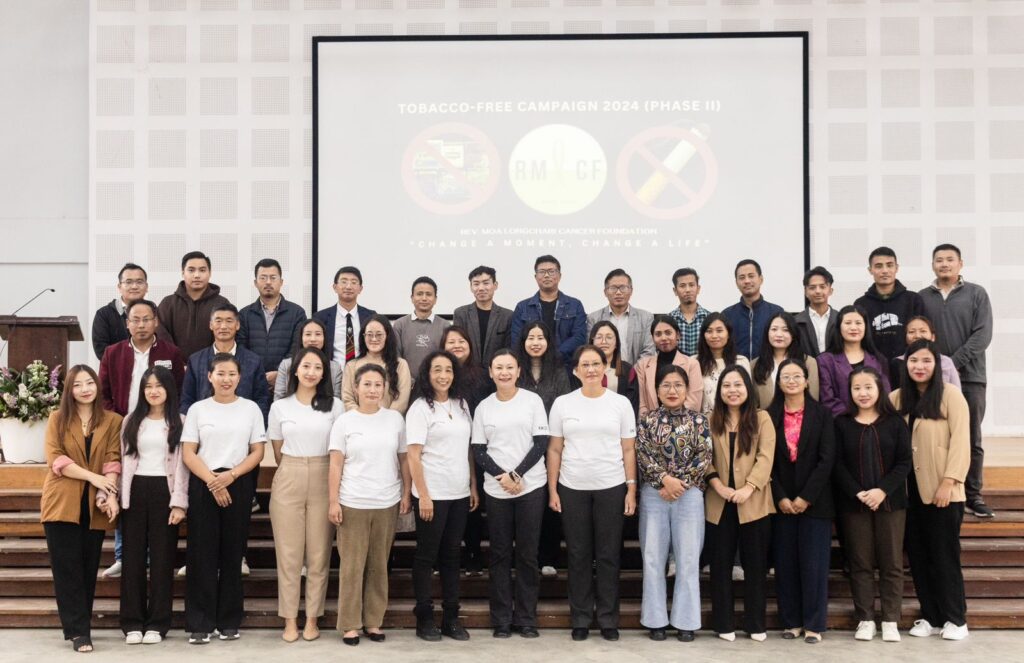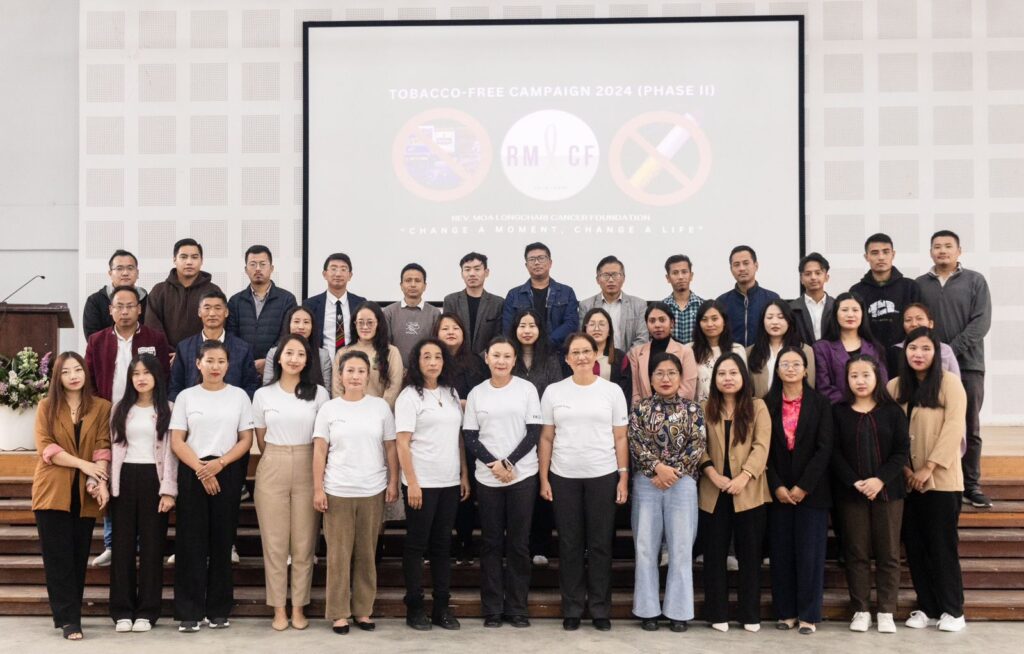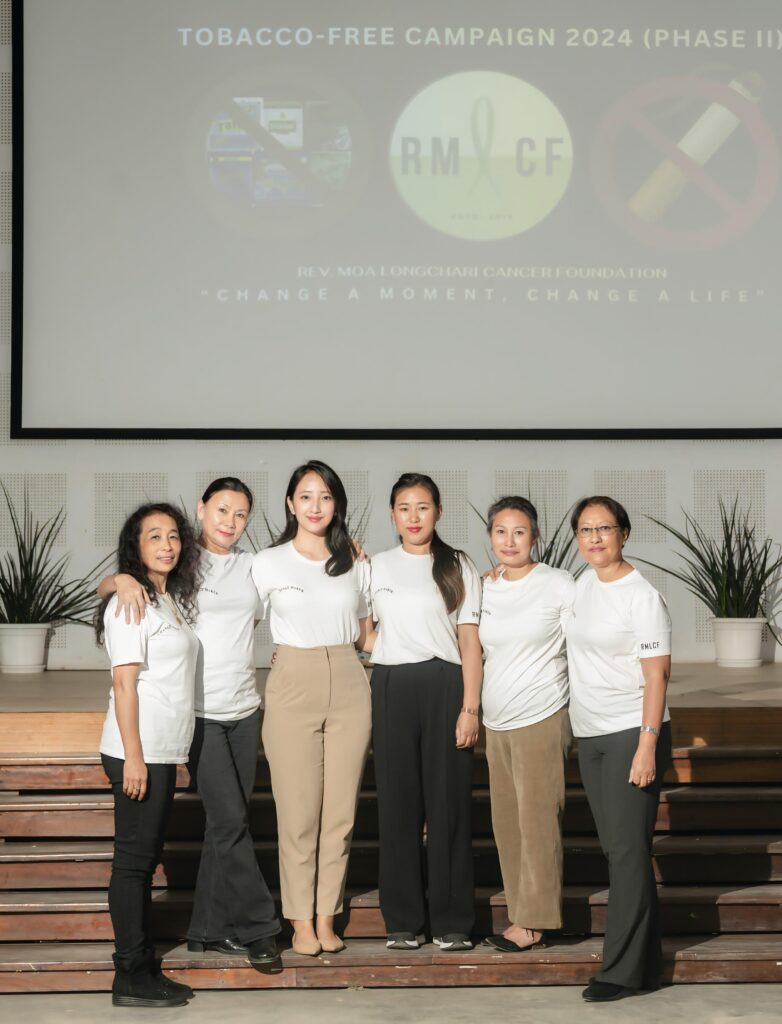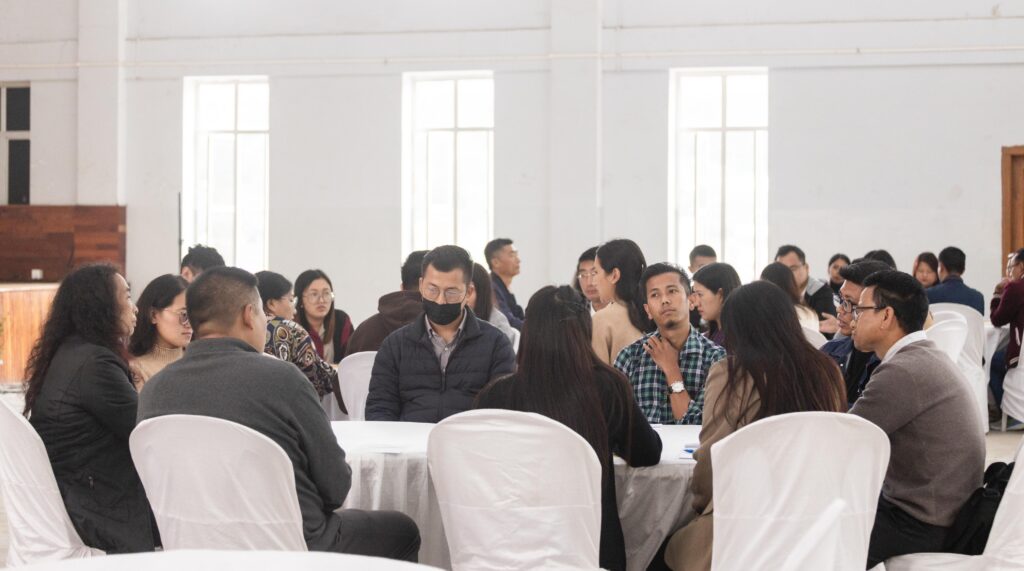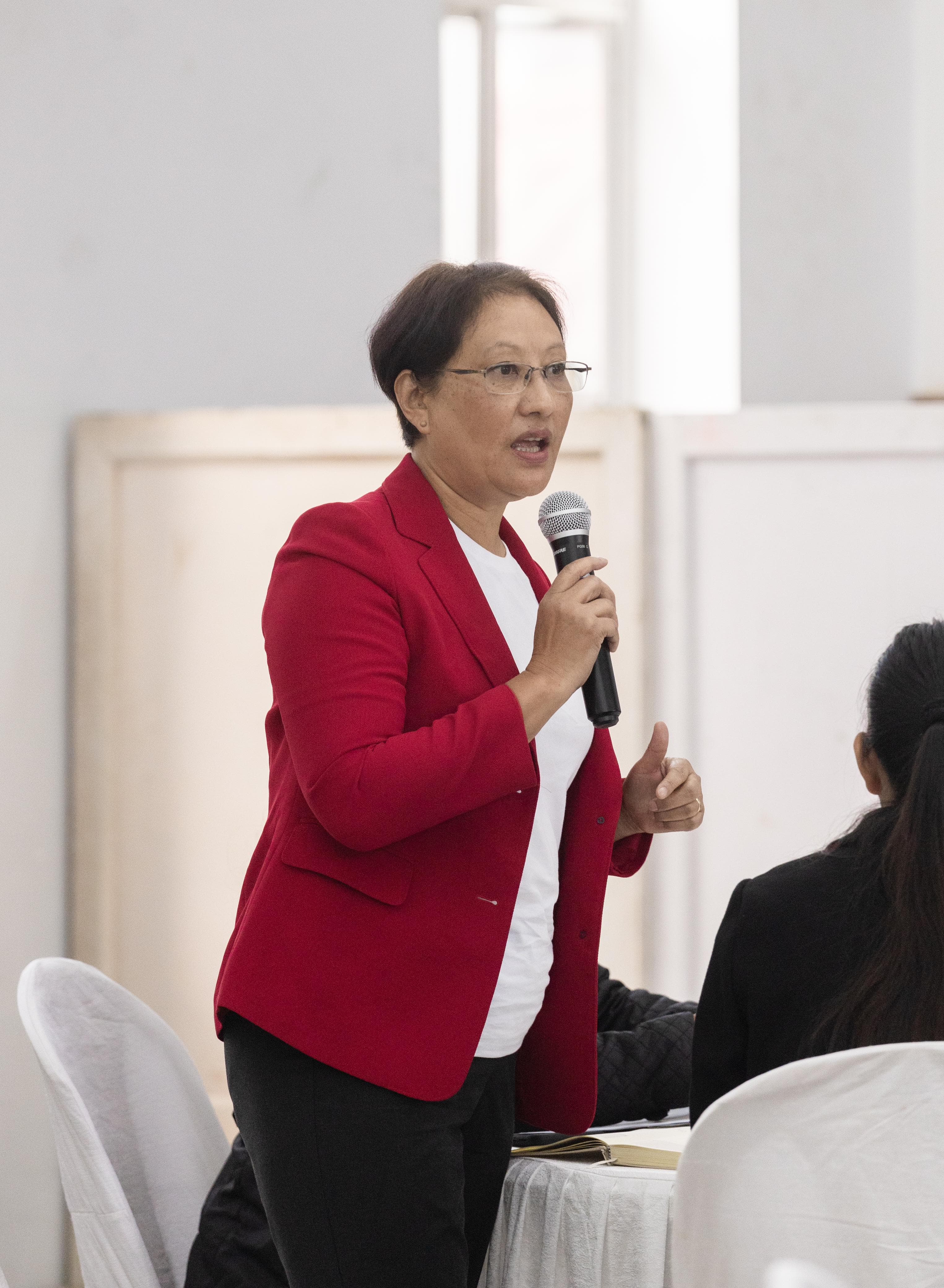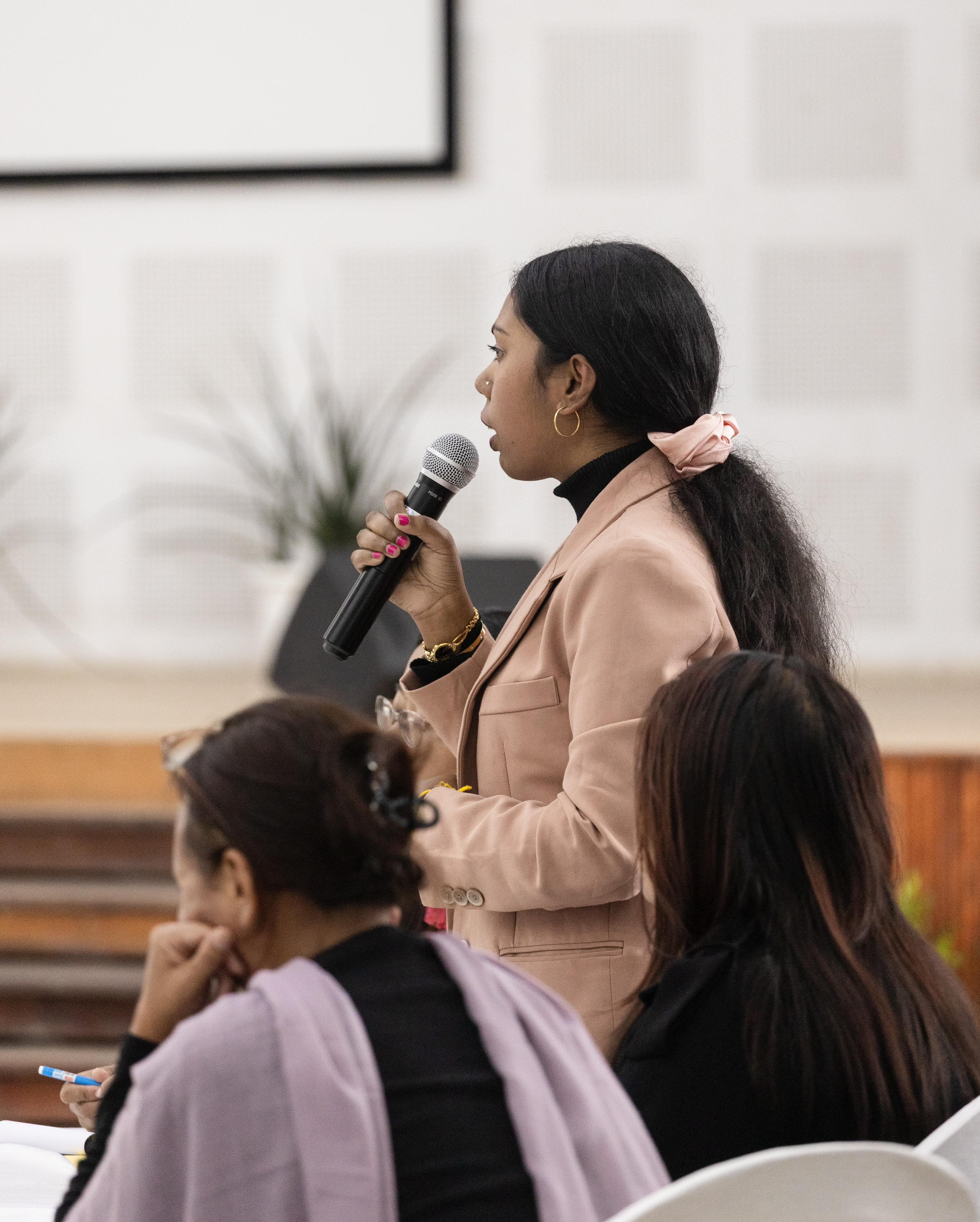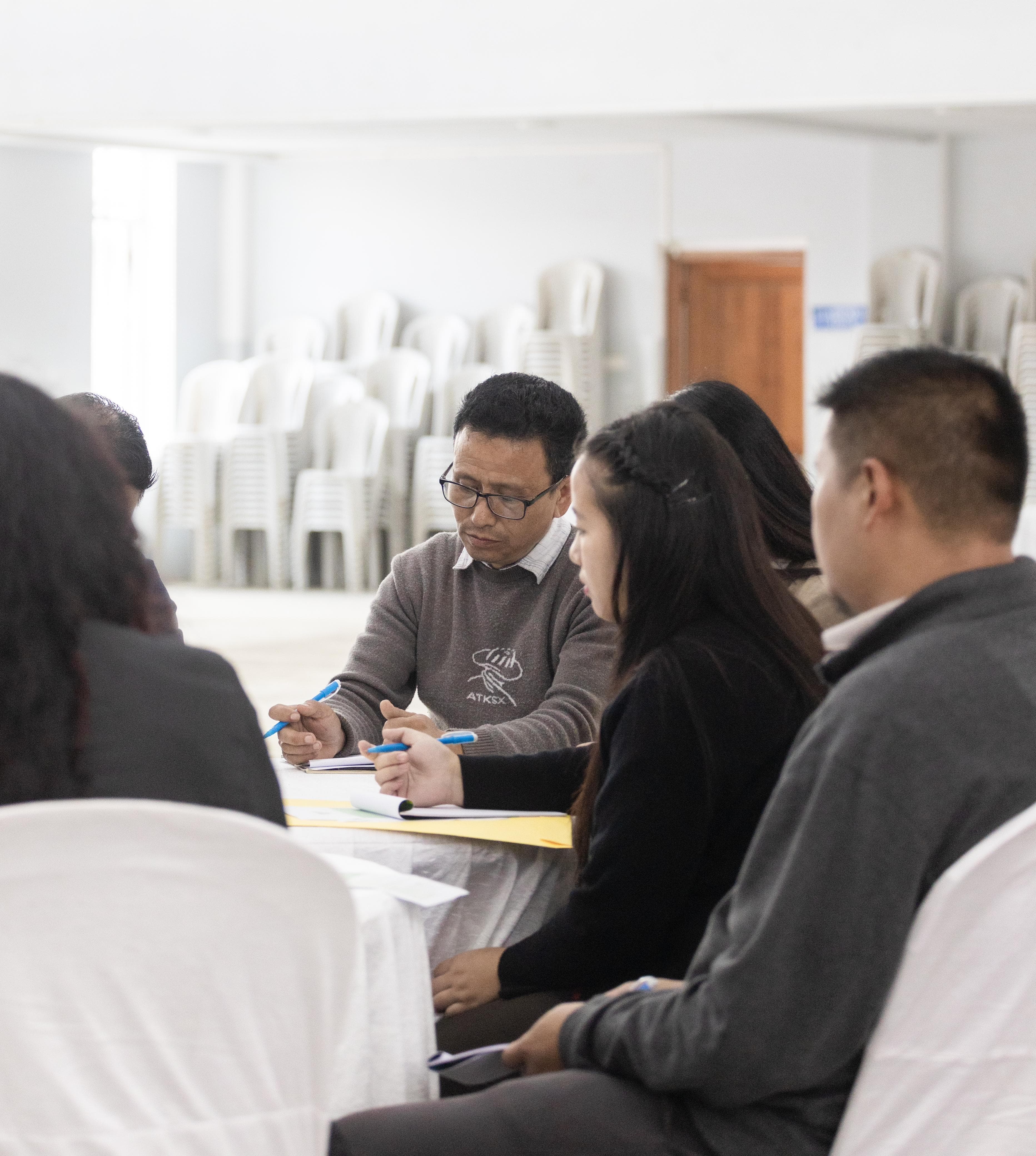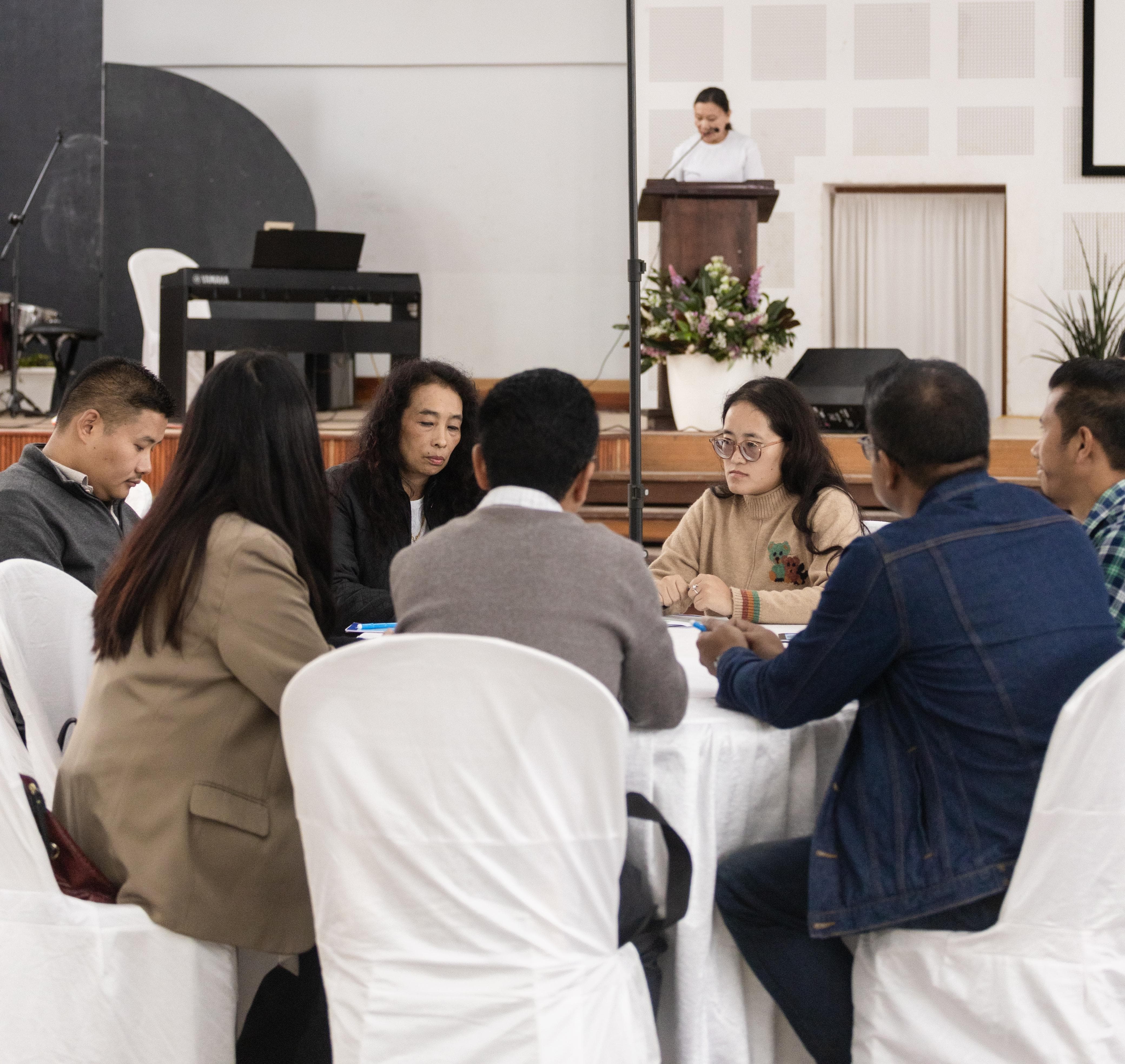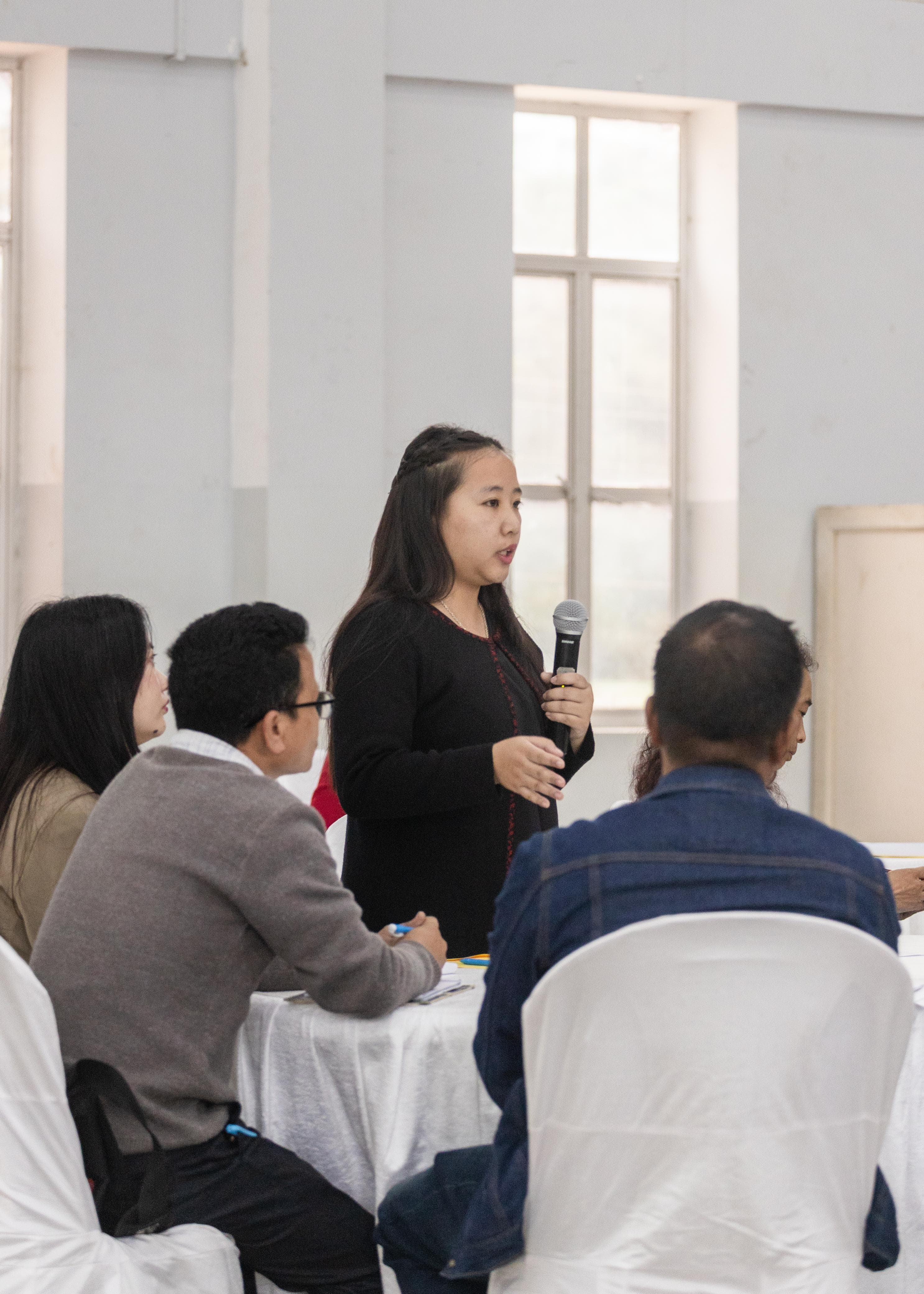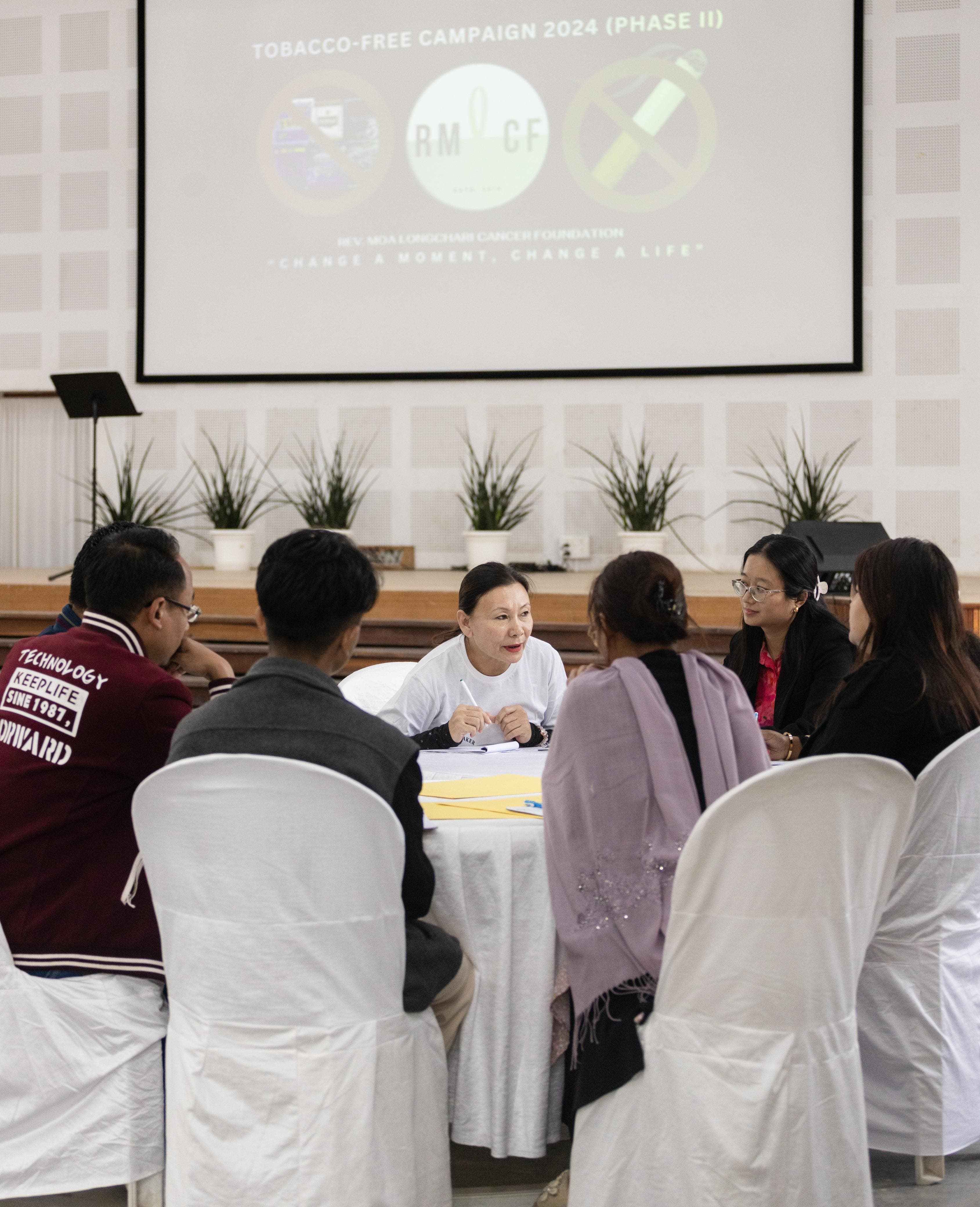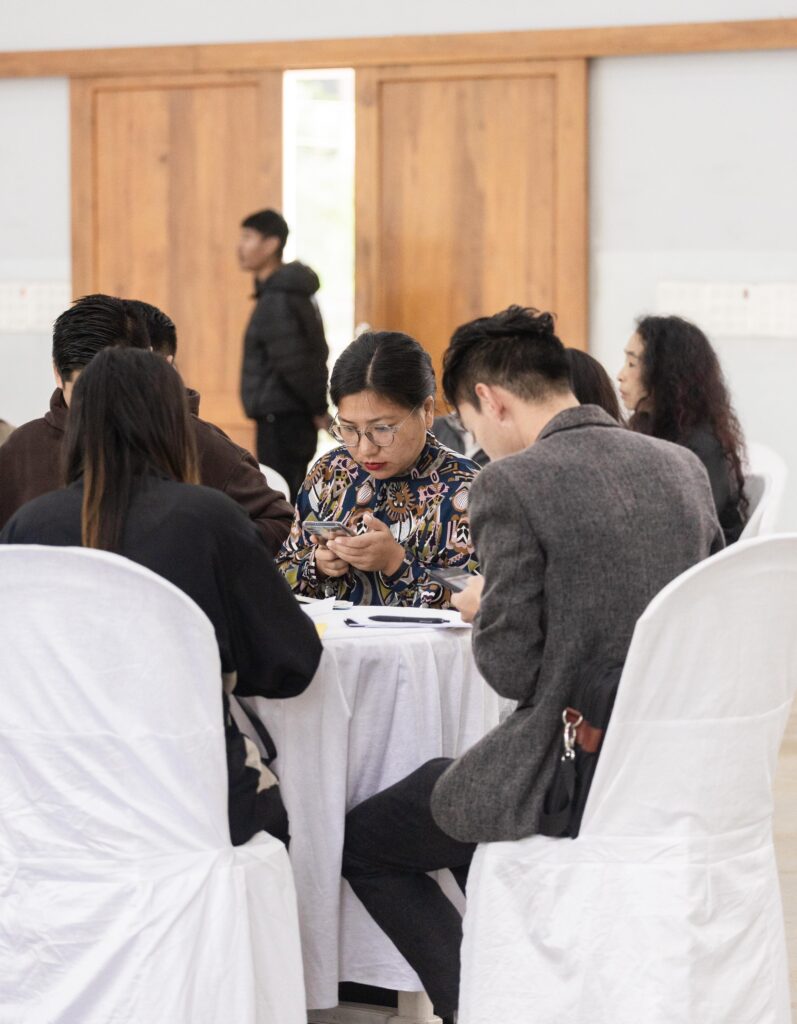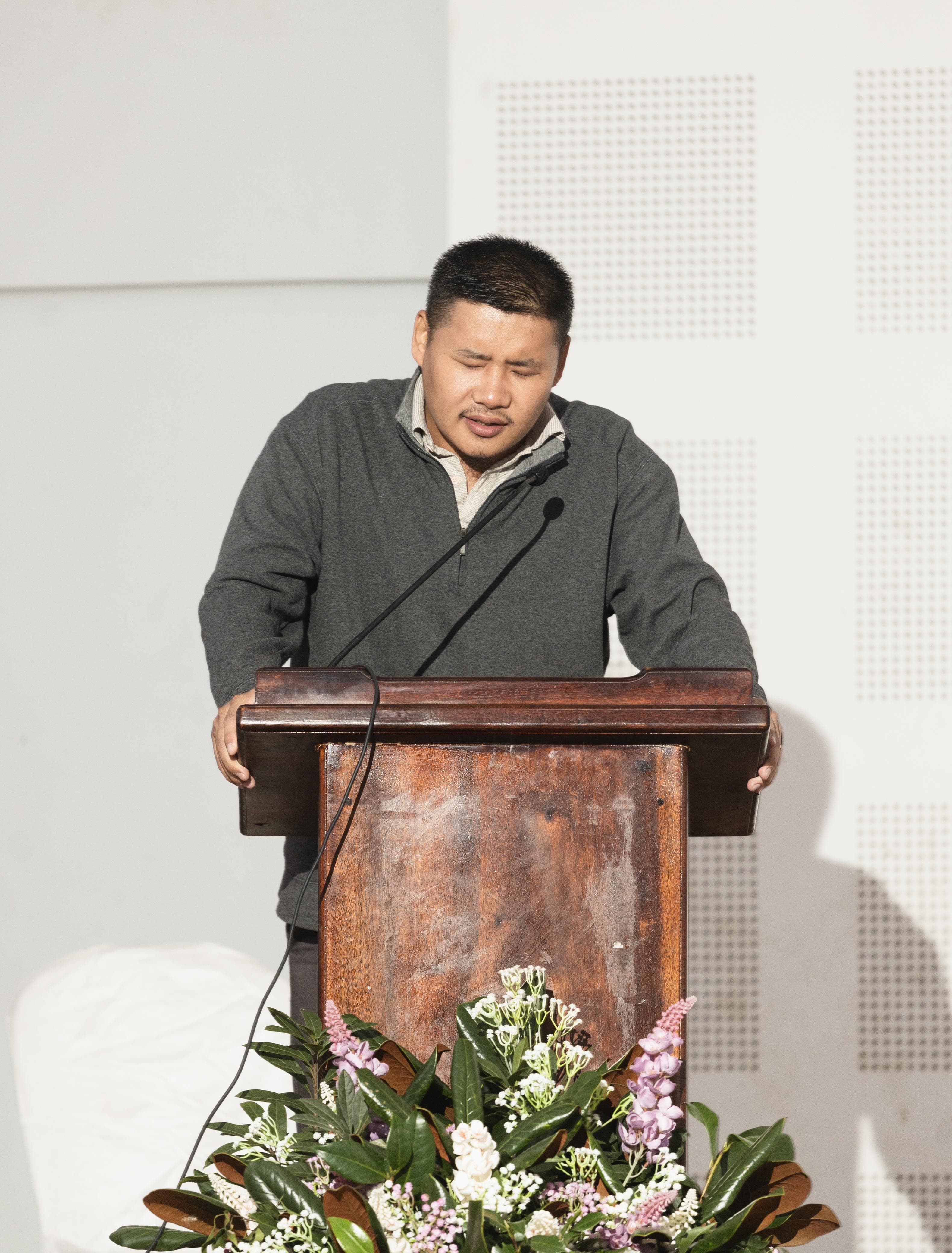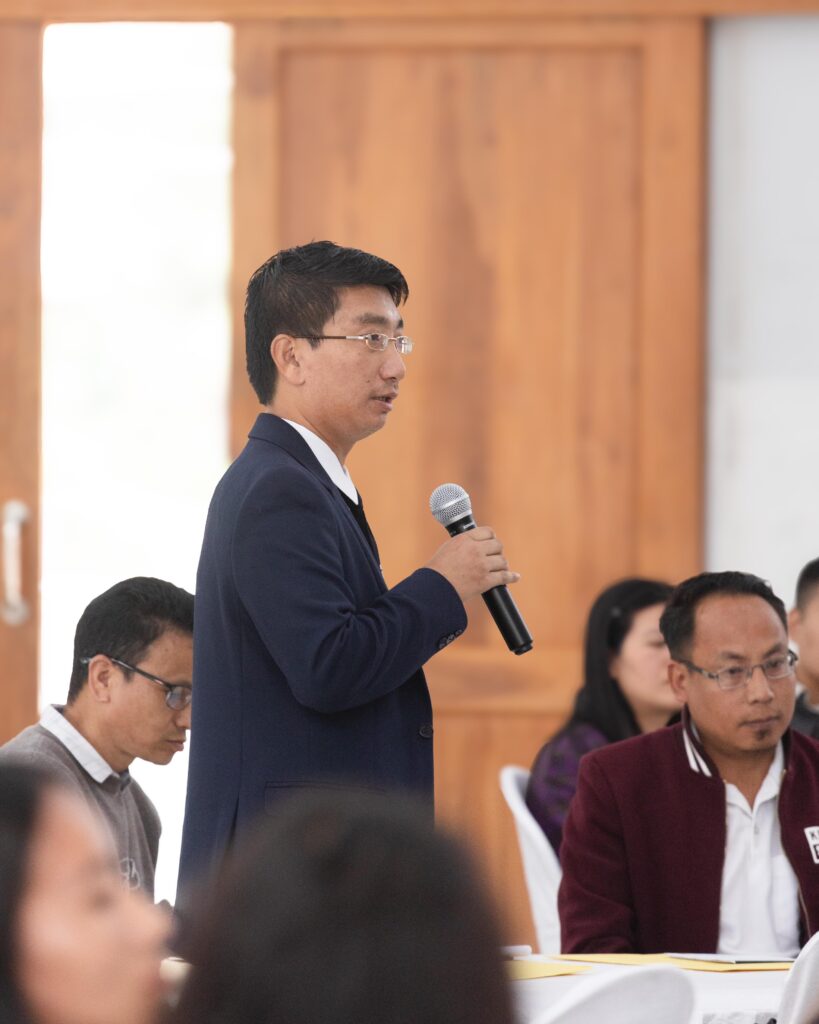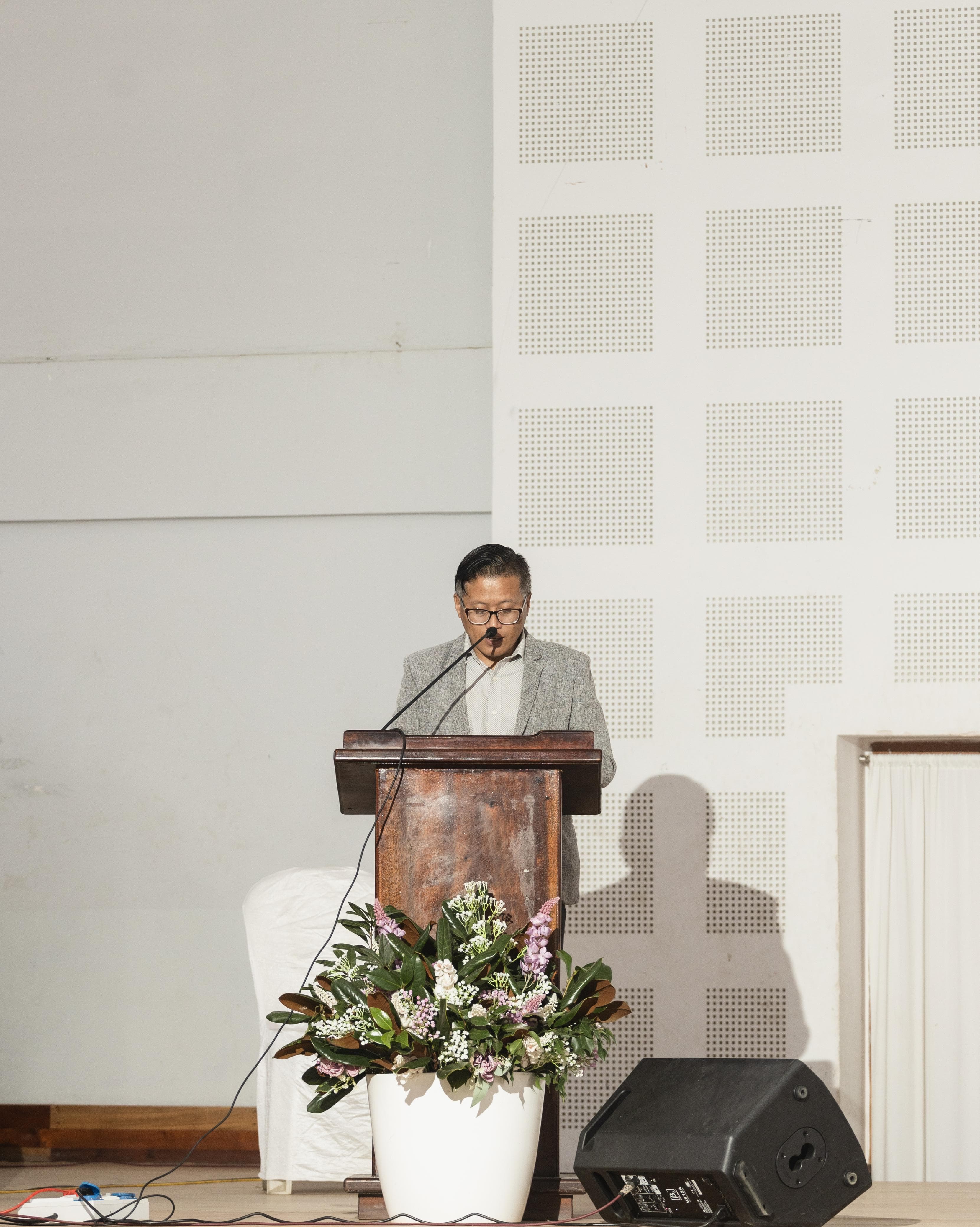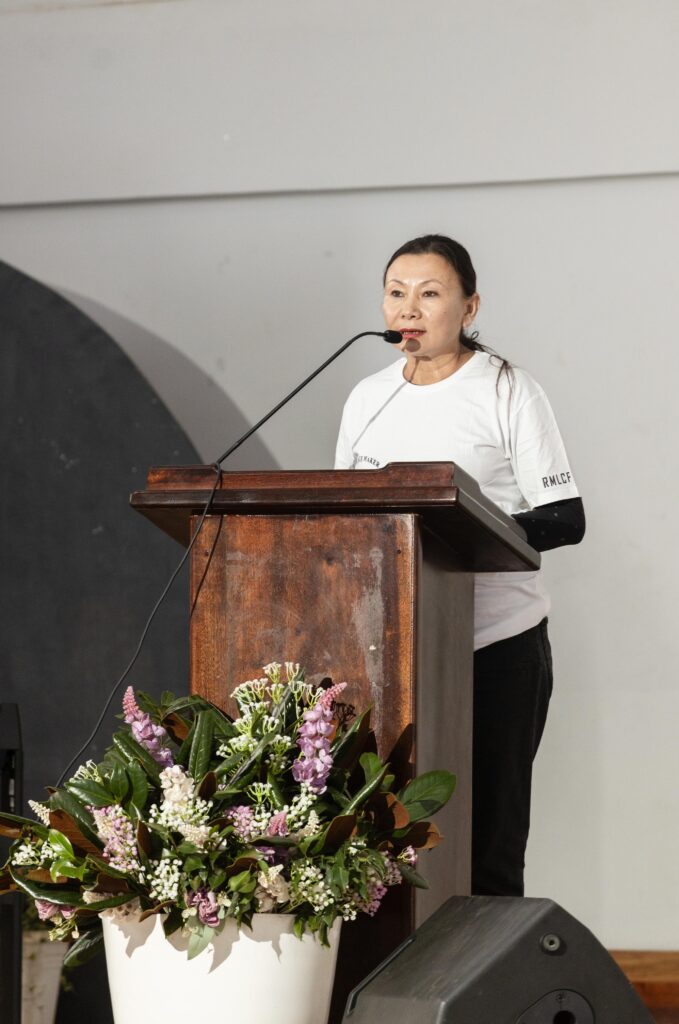November 19, 2024
TOBACCO-FREE CAMPAIGN 2024 (PHASE II)
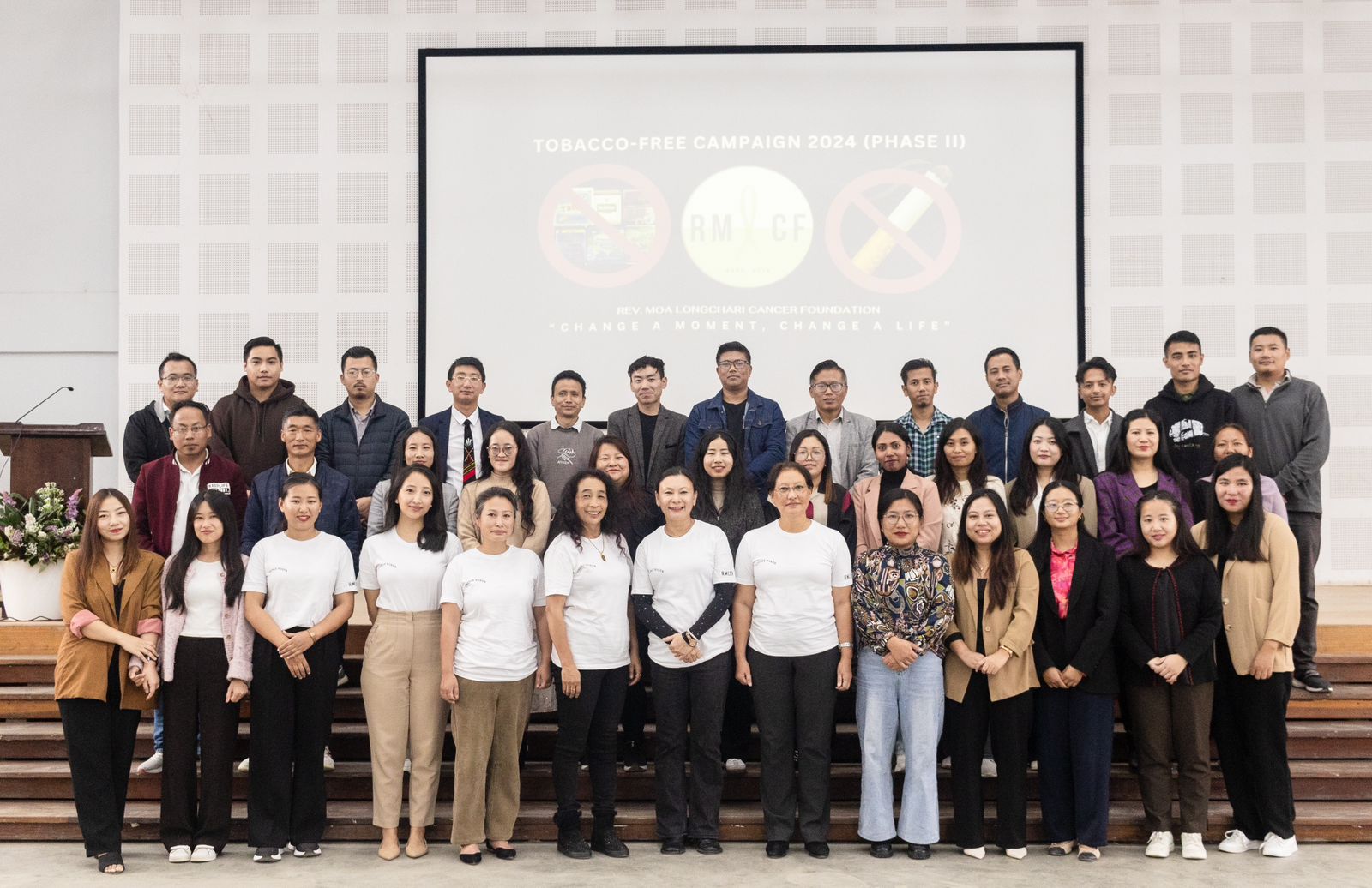
The Tobacco-Free Campaign, organized by Rev. Moa Longchari Foundation (RMLCF)
was held on October 30, 2024 at Kevilhouü Rio Auditorium, G. Rio School. The program
aimed to build on previous efforts to raise awareness, develop preventive strategies, and
emphasize the role educators play in guiding students toward a tobacco-free lifestyle. Teachers
from various schools participated to gain insights into the effects of tobacco and methods to
foster a healthier, tobacco-free environment.
Program Highlights
Sharing from Chandmari Higher Secondary School
A representative from the Tobacco-Free Club of Chandmari Higher Secondary School,
Kohima, shared their school’s initiatives to reduce tobacco usage among students. They
highlighted practices such as:
- Conducting unannounced inspections during school assemblies.
- Offering counseling sessions for both students and parents when necessary.
- Collaborating with school management and local panchayat members to maintain
tobacco-free zones around the school premises. - Encouraging students to be proactive by maintaining “No Tobacco” boards around the
campus.
Presentation by Mrs. Khrienuo Moa, President, RMLCF
Mrs. Khrienuo Moa provided a compelling presentation on the impact of tobacco use
on cancer rates. Drawing from personal experience, she explained how her late husband’s battle
with cancer motivated them to establish RMLCF. Emphasizing the role of teachers as mentors
and change-makers, she encouraged educators to move beyond traditional disciplinary
measures and adopt supportive strategies, such as: - Showing concern for students’ health and celebrating their progress.
- Avoiding nagging, scolding, and instead helping students understand nicotine
withdrawal symptoms. - Engaging in cognitive behavioural therapy and considering nicotine replacement
options. - Involving students in awareness activities to foster a collective sense of responsibility.
She highlighted that nearly 30% of all cancer cases globally are linked to tobacco use,
with India recording over one million tobacco-related deaths annually. She urged teachers to
take an active role in addressing this crisis by becoming influential figures in students’ lives.
Group Discussions and Insights
Led by Mrs. Kevino Savino, participants engaged in group discussions that produced
insightful strategies to reduce tobacco use among students. Teachers contributed ideas and discussed practical measures to implement tobacco-free initiatives in schools. These include
the following proposed strategies:
Proposed Strategies
Identify Root Causes: Investigate underlying factors contributing to student tobacco
use, such as peer influence, family environment, personal challenges, or mental health
concerns like depression.
- Provide Counselling for Students and Parents: Offer counselling support to both
students and their families to address issues related to tobacco use and provide guidance
toward healthier choices. - Integrate Tobacco Education into Curriculum: Incorporate educational modules
within the curriculum that address the risks, health impacts, and refusal skills necessary
to combat tobacco use effectively. - Recognize and Reinforce Positive Efforts: Acknowledge and reward individual
progress and commitment to overcoming tobacco use as a form of positive
reinforcement. - Collaborate with RMLCF for Expertise: Partner with the Rev. Moa Longchari
Cancer Foundation to access specialized resources, knowledge, and support in the area
of tobacco prevention and education. - Regular Monitoring of Surrounding Areas: Engage higher authorities, including
church representatives, NGOs, and community leaders, to monitor and maintain
tobacco-free zones around the school. - Promote Healthy Alternatives: Encourage students to develop healthy habits, such as
engaging in physical activities and going to gyms, which serve as positive distractions
and help keep their minds occupied. - Educators as Role Models: Teachers are encouraged to lead by example by abstaining
from tobacco use, thereby reinforcing a tobacco-free message. - Proactive School Policies: Implement and enforce strict tobacco-free policies with a
focus on prevention, addressing both possession and consumption of tobacco products. - Utilize Visual Learning Tools: Employ visual aids to effectively convey the harmful
effects and risks associated with tobacco use, making the message impactful and
accessible to students. - Inclusive Campaign Participation: Include teachers and students who use tobacco in
campaign programs, alongside those who abstain, to foster collective learning.
Additionally, invite individuals who are recovering or have overcome tobacco
addiction to share their journeys and insights. - Observe Behavioural Changes: Monitor student behaviour closely to identify
potential signs of tobacco use and offer timely support as needed. - Empower Student Clubs for Awareness: Assign student club members to maintain bulletin boards with educational materials, including posters, write-ups, and art, to continuously promote the risks and effects of tobacco.
The program concluded as an educational and enlightening experience, equipping
educators with the tools and motivation to curb tobacco usage and promote a healthier future
for students. The program was insightful and motivated educators to act as change-makers in
promoting a tobacco-free generation. The RMLCF remains committed to supporting schools
in this mission and encourages continued collaboration to safeguard youth from the harms of
tobacco.
